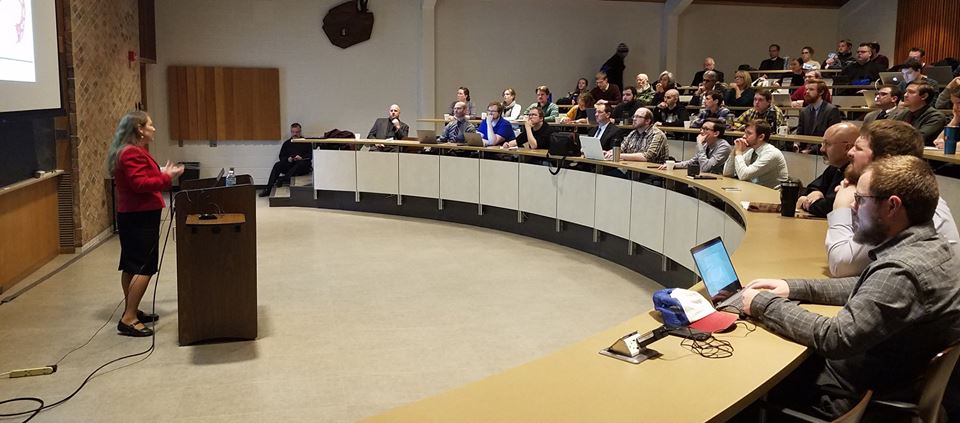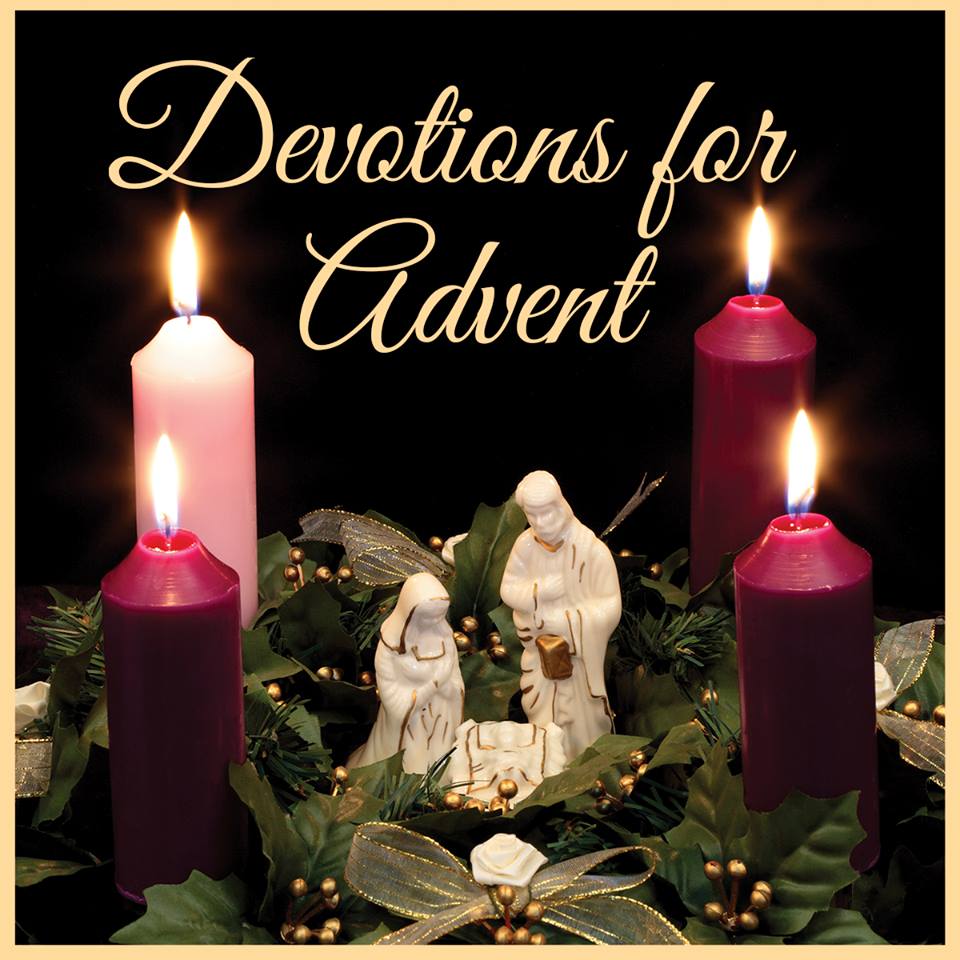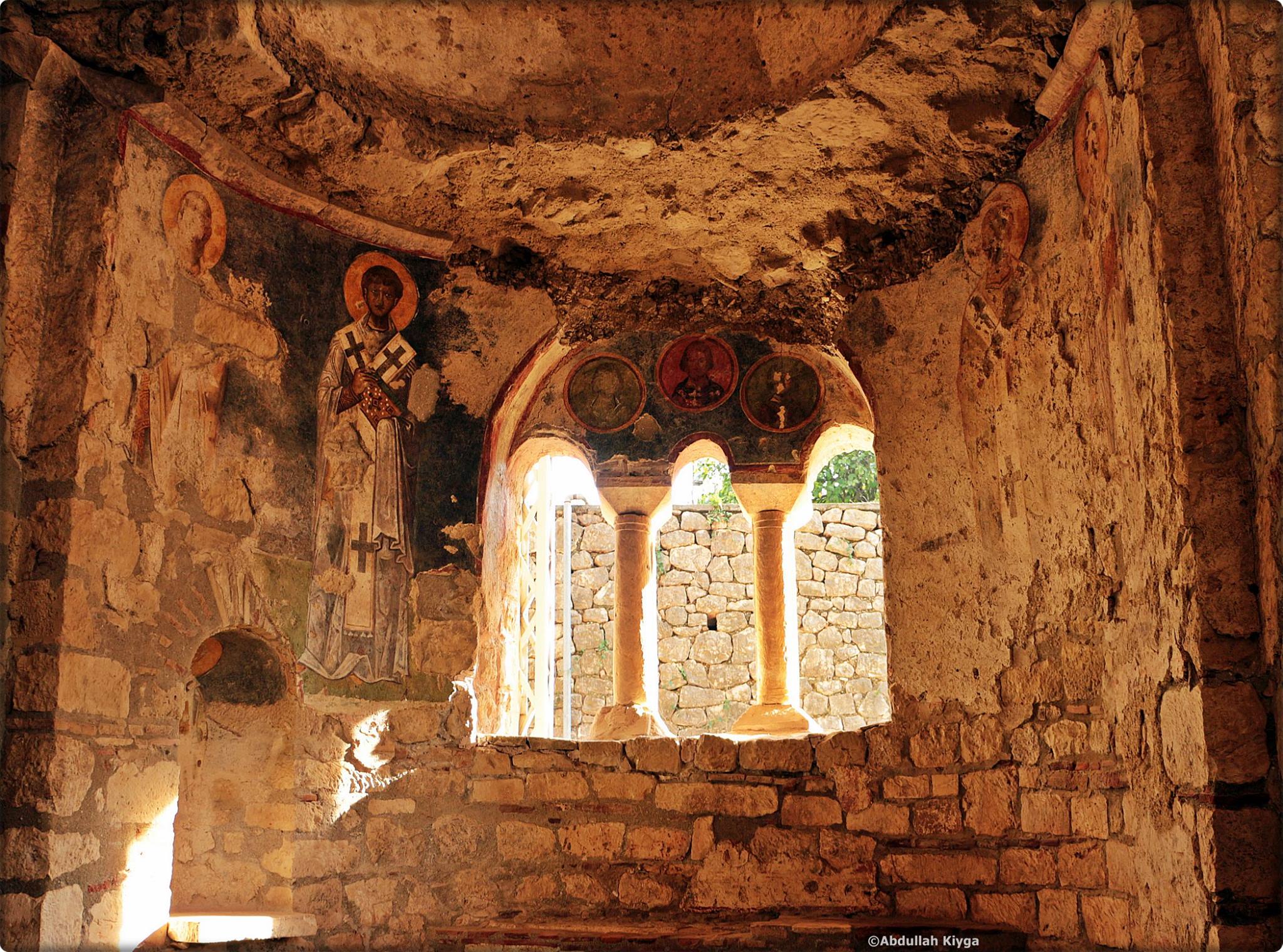
It was a full house for today’s convocation on In Vitro Fertilization (IVF), hosted by the CTSFW Life Team and taught by Dr. Donna Harrison, a board-certified obstetrician and gynecologist currently serving as Executive Director of the American Association of Prolife Obstetricians and Gynecologist (AAPLOG). Soft-spoken and eminently knowledgeable, Dr. Harrison has testified before the FDA, for multiple congressional hearings, and to the UN on the status of women. We are blessed to be able to claim her as a fellow Lutheran.
Dr. Harrison began her lecture with two warnings: 1.) That her job is not to answer theological questions but to provide scientific information (“I am likely to raise more questions than I answer,” she explained), and 2.) That the topic is a difficult one, bound up in the grief of infertility and the very real possibility that the facts she is presenting will hurt those who have already gone through the process of IVF. She urged anyone with questions or concerns to speak with her further.
She shaped her talk around several major claims made by supporters of IVF. That:
1. IVF is as natural as conception.
2. It’s safe for mothers.
3. It’s safe for babies.
Unfortunately, none of these are true. In natural procreation one egg is produced, sperm is naturally sorted, the womb prepares naturally for implantation, and God decides who lives. In IVF, 10-30 eggs are produced using a hormone to stimulate the ovaries, the doctor selects sperm based on which looks most viable, the womb has to be prepared artificially, and the Doctor decides which embryos live (which can include performing selective embryo reduction, in which a child growing in the womb is poisoned and killed with potassium chloride to keep things safer for the mother and other child or children who also successfully implanted).
Risks to the mother include Overian Hyperstimulation Syndrome (affecting 1 of 3 women), complicated deliveries, increased risk for ovarian cancer, and possibly increased risk for breast cancer. As to the babies, there are increased instances of preterm delivery and birth defects, including a 70% increased risk of perinatal death and a 4x increased likelihood of stillbirth. Furthermore, from a 20 year review of IVF in the UK, studies found that of the 3.5 million embryos created, only 1.3 million were transferred into the womb (meaning 61% were either discarded or frozen and stored). Of those transferred into the womb, 200,000 result in live births—meaning only 5% of the babies created through IVF were born.
Dr. Harrison urged the correct use of the word “baby” and “children” to stand in for embryo (“Every embryo is a child”) and the unscientific “fertilized egg” in these contexts. Take, for example, this quote:
“In the current practice of IVF, some patients may create more fertilized eggs than they need…”
Apply the correct language, and this is how it reads:
“In the current practice of IVF, some patients may create more [children] than they need…Human [children] that are discarded every day as medical waste from IVF clinics could be an important source of stem cells for research,” according to a team of researchers at Children’s Hospital Boston.
The financial cost is also high: $20-30,000 for each fresh cycle. Take into consideration that the live birth rate typically takes 3-5 cycles, you’re looking at a $120,000 bill. Doctors can cut down on costs by fertilizing multiple eggs at once (only $6,000-$11,000 per frozen, though only 3 of 10 embryos survive the thaw 100% intact), which is why IVF is done the way that it is. It is not economically feasible to do just one egg at a time; no doctors out there are doing so. And because IVF is a manufacturing process, a child isn’t so much a gift as a product. Dr. Harrison called it the “hubris of eugenics.” “When you look at your children as a product, you expect perfection,” she said. “There is an expectation of a perfect child, but every time a sinner is born.”
She added: “Never forget: IVF is an industry. It runs on business practices.” And while she firmly believes that the majority of her colleagues are compassionate individuals who truly want to help infertile couples have children, the financial incentives bring huge pressure and bias into the business. There are major financial incentives for sending women to IVF instead of the painstakingly slow and less lucrative option of NaProTechnologies, which seeks to diagnose and treat the underlying causes of infertility, so as to assist a couple in achieving pregnancy through the natural acts of procreation.
More and more pastors are routinely facing questions involving reproductive technologies. By understanding the science, our pastors (and deaconesses) are better prepared to apply God’s word to the realities of the IVF industry. For example, embryo adoption is touted as a moral solution (in fact, it was originally suggested by a doctor who is a member in AAPLOG alongside Dr. Harrison). And while it is unquestionably a good thing to rescue these babies from certain death, there is the possibility that it may increase the likelihood that a couple will choose IVF because they can justify their decision by feeling that they are also acting compassionately for others who struggle with infertility. So can we support embryo adoption without supporting the industry? “I don’t know,” Dr. Harrison admitted, looking out at the seminarians in the audience. “Those are the questions you’ll need to answer.”
Science itself cannot answer them. “Scientists only stop themselves after proving harm,” Dr. Harrison pointed out, adding that proving harm in the scientific community usually takes decades of research. “Science is unable to answer the question of ‘should we do this?’ It can only answer ‘Can we do this?’ We are desperately in need of theologians who can understand these issues so they can answer these questions.”
To learn more, visit www.aaplog.org. There are resources for finding pro-life physicians in your area (“Easier in the Midwest,” Dr. Harrison said. “Doctors on the east and west coasts are terrified of being outed and losing their jobs.”), and more information about the association itself and their position and research into abortion and life issues.



